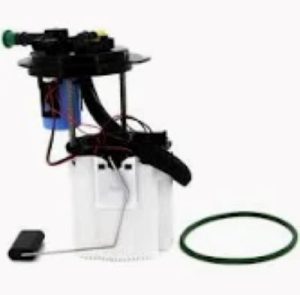While the fuel pump and fuel injector both play critical yet different roles in a car's fuel system, they work with each other to keep an engine running. The fuel pump is the device that moves gasoline from the gas tank to the engine at just the right pressure. This pressure is important because it forces the fuel injectors to correctly atomize the vaporized fuel into the combustion chamber. Fuel pumps in fuel-injected engines run at pressures of 40 to 70 psi depending on the demands of the particular application.
The fuel injector, on the other hand, is tasked with providing fuel into the engine combustion chamber in exacts amounts. It works as a valve that opens at closing speeds, injecting the atomized fuel for mixing with the air before they burn. Fuel injectors are controlled by the engine control unit (ECU) and fuel flow is adjusted to real-time conditions such as load, speed, and temperature. The advanced fuel injection technology of CRDi boosts efficiency and reduces emissions. A study by the Environmental Protection Agency (EPA) in 2018 showed that fuel injectors, if well taken care of, can decrease consumption up to 20 percent.
However, each one has a different function in the fuel system. Whereas the fuel pump simply supplies pressurized fuel as a delivery system, the fuel injector still needs to time and meter the amount of fuel that is injected into the combustion process. An under-performing engine will result from either part failing. One mode of failure could be a bad fuel pump causing the engine to misfire, stall on stops or hard start. A blocked or faulty fuel injector, on the other hand, can result in an uneven supply of diesel. This in turn results to rough idling, more fuel consumption, or higher emissions.

Fuel pumps last from 100,000 to 150,000 miles or more, depending on the vehicle and driving conditions. Fuel injectors on the other hand are usually good for thousands more miles before requiring service, albeit regular cleaning to fight off clogging issues. AAA stated in their 2020 report that most owners could avoid such expensive replacements by simply taking care of the fuel pump and injectors with a replacement running about $300 to $500 for an injector, or up to between $400-$600 for the fuel pump.
Engine performance is only as strong as the weakest part, to paraphrase automotive innovator Henry Ford. The fuel pump and the fuel injector work together to make the engine run, emphasizing a combination of their functions.
So at the end, the fuel pump makes sure that enough amount of gasoline is carried to the engine underpressure. While fuel injector on top inject just right amount of petrol inthe combustion chamber. To learn more about fuel pump maintenance and replacements, it would be best to read more on Fuel Pump.
